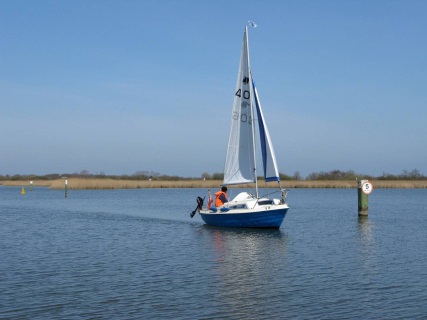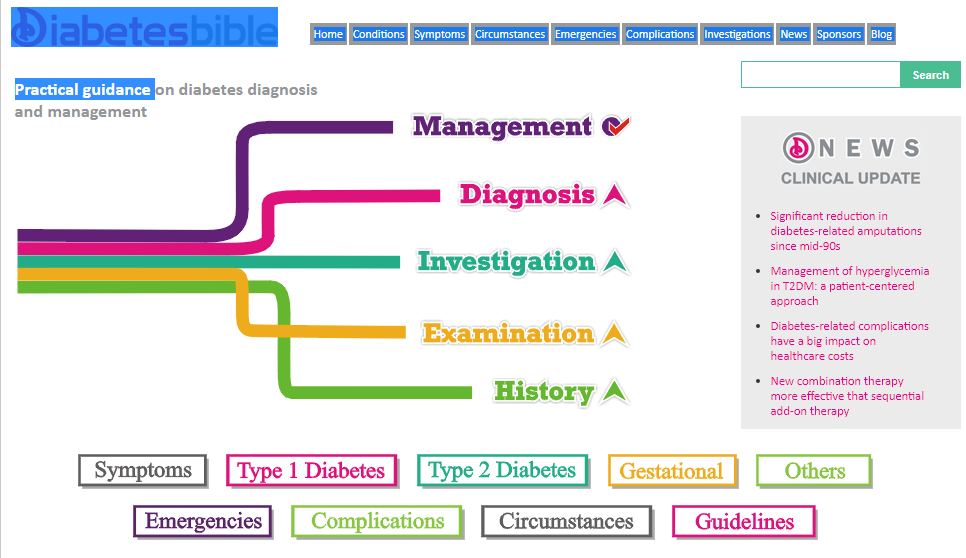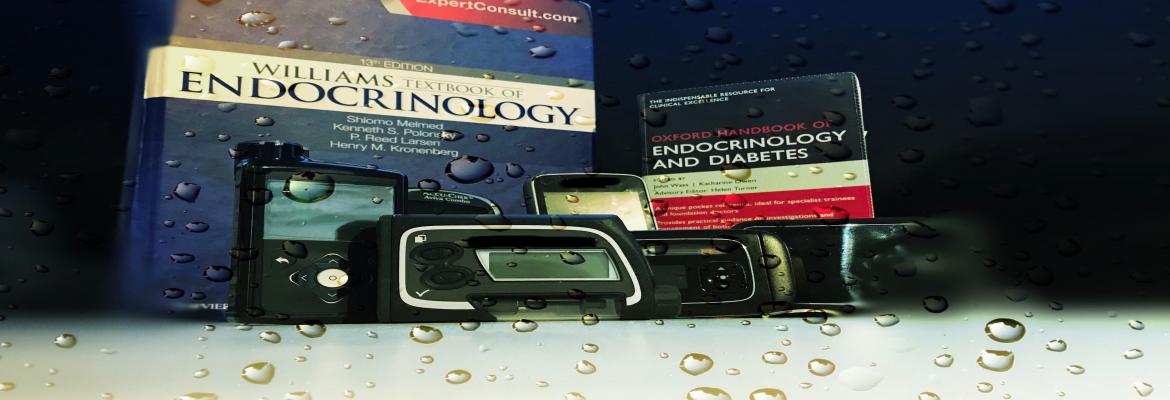Diabetes and Endocrinology in East of England
Endocrinology and diabetes is a fascinating specialty encompassing basic mechanisms of physiology and pharmacology coupled with the ability to improve quality of life and long-term outcomes through effective disease control, and often cure. Endocrine and metabolic diseases are commonly encountered in the UK population and are increasing in prevalence and impact emphasising the need to continue to improve health care delivery in the specialty. Endocrine diseases and diabetes affect every physiological system of the body and specialists need a wide range of skills and expertise and make a major contribution to general medicine in its broadest sense. 
The specialty has something to offer for everyone. Many of the endocrine diseases we encounter are rare ones and pose diagnostic and therapeutic challenges, and present considerable intellectual stimulus. There are equally challenging less rare conditions that require working closely with many different multiprofessional colleagues. A broad training in endocrinology and diabetes provides the basis for progression to specialist posts in a wide range of settings from the smaller hospital to the large tertiary referral centre, from the community base to the University academic department.
Why Train in the East of England?
 The East of England provides a high standard of living combining city, country and coast, internationally recognised teaching and research, and great weather! One of the advantages of training in the east of England is the number of opportunities open to every trainee. In addition to high quality clinical training there are extra opportunities to develop skills in research, teaching, management or leadership both in and out of programme. If you choose to train in the East of England you would join a team of diabetologists and endocrinologists with a wide range of clinical and research interests who deliver nationally and internationally recognised services and contribute to clinical practice in the UK through their work on national networks, societies and guideline committees.
The East of England provides a high standard of living combining city, country and coast, internationally recognised teaching and research, and great weather! One of the advantages of training in the east of England is the number of opportunities open to every trainee. In addition to high quality clinical training there are extra opportunities to develop skills in research, teaching, management or leadership both in and out of programme. If you choose to train in the East of England you would join a team of diabetologists and endocrinologists with a wide range of clinical and research interests who deliver nationally and internationally recognised services and contribute to clinical practice in the UK through their work on national networks, societies and guideline committees.
Unlike many other schools, successful trainees are aware of the location of all five years of their training programme at the time of appointment, which helps domestic planning. The East of England School of Medicine is located in a large region but as a school we prioritize arranging rotations to prevent unreasonable commuting distances. All trainees spend a minimum of 20 months in a teaching hospital either rotating to Addenbrooke’s Hospital or the Norfolk and Norwich University Hospital.
Post Graduate Certificates in Medical Education: many of our trainees have completed PGCE, sponsored by the School.
Research: There are well established academic clinical fellow (ACF) and clinical lecturer (CL) programmes within the region and we support all clinical trainees wishing to take time out of programme to undertake a higher degree. There are a wide range of research opportunities encompassing diabetes, obesity, endocrinology and metabolic medicine.
Clinical Excellence and Expertise in Diabetes and Endocrinology in East of England:
If you choose to train in the East of England you would join a team of diabetologists and endocrinologists with a wide range of clinical and research interests who deliver nationally and internationally recognised services and contribute to clinical practice in the UK through their work on national networks, societies and guideline committees.
Nationally recognised services in in several areas:
The National Severe Insulin Resistance Service at Addenbrookes provides a multidisciplinary NHS service for patients with severe insulin resistance and/or lipodystrophy from throughout England.
Diabetes in pregnancy: there are large research active Diabetes Antenatal Services at Addenbrookes and Norwich and throughout the region with studies using closed loop (“artificial pancreas”) led by Prof Helen Murphy. A recent Eastern Academic Health Science Network Diabetes Pre-pregnancy Care Project has ensured region-wide engagement with GPs, practice nurses, community diabetes teams, health visitors, sexual health teams and the public to promote diabetes preconception care.
Insulin pumps/ artificial pancreas: There are large insulin pump services at Addenbrookes and Norwich (paediatrics, transition, adults, pregnancy) with research into artificial pancreas or closed loop models at Addenbrookes.
Diabetic foot disease: there are large research-active diabetic foot clinics at Norwich and Ipswich.
The Metabolic Bone Clinic run by Prof Jeremy Turner and Prof Bill Fraser at Norfolk and Norwich University Hospital NHS Foundation Trust is one of only 10 centres to have been awarded the Paget’s Association Centre of Excellence award
Trainees Perspective
Dr Shoib Ur Rehman
Endocrinology and Diabetes is the most exciting subject in medicine as it encompasses the most variety of organs and conditions starting from hypothalamus down to the toes . Embedded with in it is the physiology of rhythm and delicate harmony of almost all human hormones and their far reaching affects . Diagnosing subtle abnormalities and restoring the balance is the most satisfying feeling one gets with this speciality .
The training programme designed for East of England Deanery is unique in terms of delivering high quality education and experience through regular regional training days and clinical work . Consultant colleagues across the region are extremely approachable and have keen interest in teaching and preparing consultants of future who meet high standards of patient care and expertise in the field.
The training programme takes 5 years and results in dual accreditation and CCT in Endocrinology & Diabetes and General Medicine. Being ‘The Medical Registrar’ is a challenging experience, but is also very rewarding in developing leadership skills ,managing all medical admissions and acting in charge of hospital organisation specially at night shifts. The rotations are usually set so most of general medical experience is expected to be achieved during smaller district general hospitals placements along with general Diabetes and Endocrinology exposure and at least 20 months of University Hospital placement (Cambridge University Hospitals/Norfolk & Norwich University Hospitals)where trainees gain experience in more complex and specialists clinics such as NET, Pituitary disorders , Bone Metabolism , Reproductive Endocrinology and obesity.
As a highly academic field of Medicine, there are also plenty of opportunities for research/audit/education. In fact, trainees are highly encouraged to pursue their academic interest. There are many world leading researchers of different interest within the Deanery (e.g. genetics in obesity, thyroid disorders, lipid disorders, etc.). This gives you a variety of research options that you can choose to embark on based on your interest.
Overall, the EOE Diabetes & Endocrinology Programme is a well-structured training setting which enables trainees to meet curriculum requirements set by JRCPBT coupled excellent guidance and support from consultants and senior registrar colleagues . It is a friendly deanery with good network of support, a great teaching environment with excellent local schools and beautiful landscapes on your doorstep. Most of the trainees on completion of their training stay in the region which in itself speaks volumes of trust development between trainers and trainees - as well as the quality of life in the East of England.
Endobible: an online resource developed by Dr Frankie Swords (Norwich)

Diabetesbible - an online resource developed by Professor Jeremy Turner (Norwich)

Contributions to National Endocrine Guidelines
Society for Endocrinology Endocrine Emergency Guidance: Emergency management of acute hypocalcaemia in adult patients. Jeremy Turner (Norfolk and Norwich University Hospital), Neil Gittoes, Peter Selby, the Society for Endocrinology Clinical Committee.
Guidelines for the management of thyroid cancer. Third edition. British Thyroid Association July 2014. Perros P, Colley S, Boelaert K, Evans C, Evans RM, Gerrard GE, Gilbert JA, Harrison B, Johnson SJ, Giles TE, Moss L, Lewington V, Newbold KL, Taylor J, Thakker RV (Addenbrookes), Watkinson J, Williams GR
Management of primary hypothyroidism: statement by the British Thyroid Association Executive Committee. Onyebuchi Okosieme, Jackie Gilbert, Prakash Abraham, Kristien Boelaert, Colin Dayan, Mark Gurnell (Addenbrookes), Graham Leese, Christopher McCabe, Petros Perros, Vicki Smith, Graham Williams and Mark Vanderpump
Society for Endocrinology Endocrine Bone and Calcium Network: Convenor: Jeremy Turner (Norwich).
Contributions to National Diabetes Guidelines
National Institute for Clinical Excellence
- Dr Amanda Adler (Addenbrookes) chairs a multi-disciplinary Technology Appraisal Committee at the National Institute for Health Excellence (NICE)
- Catherine Gooday (Principal Podiatrist, Norwich) is an expert adviser for the NICE Centre for Guidelines (CfG). Member of the group that developed the NICE guidance; Diabetic foot problems: prevention and management (2015).
The Hospital Management of Hypoglycaemia in Adults with Diabetes Mellitus. JBDS 01
Lead authorship: Esther Walden (RGN), Norfolk and Norwich University Hospitals NHSFT, Debbie Stanisstreet, Christine Jones, Norfolk and Norwich University Hospitals NHSFT, Dr Alex Graveling.
Supporting organisations: Tracy Kelly, Diabetes UK, Professor Mike Sampson (Norwich), Joint British Diabetes Societies (JBDS) Inpatient Care Group Chair, Esther Walden (Norwich), Diabetes Inpatient Specialist Nurse (DISN) UK Group Chair, Dr Chris Walton (Hull), Association of British Clinical Diabetologists (ABCD) Chair.
The Hospital Management of DKA in Adults. Revised September 2013. JBDS 02
Lead authorship: Dr Ketan Dhatariya, Norfolk and Norwich University Hospital NHS Foundation Trust, Dr Mark Savage.
Supporting organisations: Tracy Kelly, Diabetes UK, Professor Mike Sampson (Norwich), JBDS Inpatient Care Group Chair, Esther Walden (Norwich), Diabetes Inpatient Specialist Nurse (DISN) UK Group Chair, Dr Chris Walton, ABCD Chair.
Management of adults with diabetes undergoing surgery and elective procedures: improving standards April 2011. JBDS 03
Ketan Dhatariya (Norfolk & Norwich University Hospital), Daniel Flanagan, Louise Hilton, , Anne Kilvert, Nicholas Levy, Gerry Rayman, (Ipswich Hospital), Bev Watson.
Self-Management of Diabetes in Hospital March 2012. JBDS 04.
Lead authorship: Dr Daniel Flanagan, Maggie Watkinson.
Supporting organisations: Esther Walden (Norwich) Diabetes Inpatient Specialist Nurse (DISN) UK Group Chair, Professor Mike Sampson (Norwich) JBDS Inpatient Care Group Chair, Dr Chris Walton, ABCD Chair, Tracy Kelly, Diabetes UK
Glycaemic management during the inpatient enteral feeding of stroke patients with diabetes June 2012 JBDS 05.
Lead authorship: Dr Aled Roberts, Simone Penfold.
Trust Supporting organisations: Jill Hill TREND UK, Tracy Kelly, Diabetes UK, Professor Mike Sampson (Norwich), JBDS Inpatient Care Group Chair, Esther Walden (Norwich), Diabetes Inpatient Specialist Nurse (DISN) UK Group Chair, Dr Chris Walton, ABCD Chair
The Management of the hyperosmolar hyperglycaemic state (HHS) in adults with diabetes August 2012 JBDS 06. Lead authorship: Dr Adrian Scott, Anne Claydon.
Supporting organisations: Tracy Kelly, Diabetes UK, Professor Mike Sampson (Norwich), JBDS Inpatient Care Group Chair, Esther Walden (Norwich), Diabetes Inpatient Specialist Nurse (DISN) UK Group Chair, Dr Chris Walton, ABCD Chair.
Admissions avoidance and diabetes: guidance for clinical commissioning groups and clinical team; December 2013, JBDS 07.
Lead authorship: Dr Belinda Allan, Professor Mike Sampson (Norfolk and Norwich University Hospitals NHSFT).
Supporting organisations: Dr Paul Downie (PCDS), Tracy Kelly Diabetes UK, Fiona Kirkland (PCDS), Esther Walden Chair, Diabetes Inpatient Specialist Nurse UK Group (Norwich), Dr Chris Walton Chair,ABCD.
Management of Hyperglycaemia and Steroid (Glucocorticoid) Therapy October 2014. JBDS 08. Lead authorship: Dr Aled Roberts, June James, Dr Ketan Dhatariya, Norfolk and Norwich University Hospitals NHSFT.
Supporting organisations: ABCD Chair: Dr Rob Gregory, Diabetes Inpatient Specialist Nurse (DISN) UK Group Chair: Esther Walden (Norwich), Diabetes UK: Tracy Kelly, Head of Care JBDS Inpatient Care Group Chair: Professor Mike Sampson (Norwich)
Management of glycaemic control in pregnant women with diabetes on obstetric wards and delivery units May 2017. JBDS 12.
Lead authorship: Dr Umesh Dashora, East Sussex Healthcare NHS Trust, Dr Rosemary Temple, Norfolk and Norwich University Hospitals NHSFT, Professor Helen Murphy, Professor of Medicine (Diabetes and Antenatal Care), Norwich Medical School University of East Anglia and Honorary Consultant Addenbrooke’s.
Supporting organisations: Diabetes UK: David Jones, Head of Involvement and Shared Practice JBDS for Inpatient Care, Chair: Professor Mike Sampson (Norwich), Diabetes Inpatient Specialist Nurse (DISN) UK Group, Chair: Esther Walden (Norwich), Association of ABCD, Chair: Dr Rob Gregory.
Diabetes UK Position Statements and Care Recommendations NHS Diabetes guideline for the perioperative management of the adult patient with diabetes. Dhatariya (Norwich), N. Levy, A. Kilvert, B. Watson, D. Cousins, D. Flanagan, L. Hilton, C. Jairam, K. Leyden, A. Lipp, D. Lobo, M. Sinclair-Hammersley and G. Rayman (Ipswich) for the Joint British Diabetes Societies
Reading list
(As recommended for SCE: https://www.mrcpuk.org/mrcpuk-examinations/specialty-certificate-examinations/specialties/endocrinology-and-diabetes )
1) Textbooks
- Oxford Handbook of Endocrinology and Diabetes 2nd Edition 2009 (H Turner, J Wass)
- Oxford Textbook of Endocrinology and Diabetes 2nd Edition 2011 (J Wass, P Stewart)
- Williams Textbook of Endocrinology 12th Edition 2011 (S Melmed et al)
- Textbook of Diabetes 4th Edition 2010 (R Holt et al)
2) Journals
- Clinical Endocrinology
- Journal of Clinical Endocrinology and Metabolism
- European Journal of Endocrinology
- Nature Reviews Endocrinology
- Diabetic Medicine
- Diabetologia
- Diabetes Care
- British Medical Journal
- Lancet
- New England Journal of Medicine
3) Guidelines
- National Institute for Health and Clinical Excellence (NICE)
- Scottish Intercollegiate Guidelines Network (SIGN)
- British Thyroid Association (BTA)
- Endocrine Society Clinical Practice Guidelines
- Joint British Diabetes Society Guidelines
- International Association of the Diabetes and Pregnancy Study Groups
- Driver and Vehicle Licensing Agency (DVLA) Guidelines
4) Conferences
- Association of British Clinical Diabetologists
- Diabetes UK
- Society for Endocrinology - Clinical Update Meeting and BES Meeting
- European Society of Endocrinology (ESE)
- European Association for the Study of Diabetes (EASD)
- US Endocrine Society
- American Diabetes Association (ADA)
5) Online Resources
6) Further reading, courses and free access to webinars:
- Diabetes and Endocrinology Regional Training Days: Since the COVID 19 pandemic, regional training has been delivered online. These have been half-day sessions provided by hospitals across the region covering as much of the curriculum as possible. In the future we are hoping to provide in-person teaching again.
- EASE (East Anglian Society of Endocrinology) meetings: Invitational meetings for all Endocrine Consultants as well as Resident Doctors with a range of speakers. The last meeting took place on 29 November 2024.
- Local teaching: Addenbrooke's and Norfolk and Norwich Hospital aim to provide regular local teaching.
- GIM (General Internal Medicine) Teaching: There are usually 9 training days a year provided by the Regional Hospitals which help cover GIM curriculum requirements. They are currently being offered in a hybrid format to allow in-person and online attendance.
2025/2026 Regional Training Dates
Detailed guidance on the Diabetes & Endocrinology assessment blueprint and curriculum is available from the JRCPTB website. https://www.jrcptb.org.uk/sites/default/files/Endocrinology%20and%20Diabetes%20Mellitus%202022%20Curriculum%20FINAL%20July.pdf
Please follow this link https://reports.gmc-uk.org/analytics/saw.dll?Dashboard&PortalPath=%2Fshared%2FNTS_LTD%2F_portal%2FNTS&Page=NTS%20trainee%20reports&P1=dashboard&Action=Navigate&ViewState=veo76pusm0vs5ea1mpjt7lcbi2&P16=NavRuleDefault&NavFromViewID=d%3Adashboard~p%3Aevkf7qvbniab2isj for the Endocrinology and diabetes mellitus GMC National Training Survey report of trainee satisfaction.
Entry into Endocrinology and Diabetes Mellitus training is possible following successful completion of both a foundation programme and a core training programme. There are two core training programmes for Endocrinology and Diabetes Mellitus training:
• Internal Medicine Training(IMT)
• Acute Care Common Stem (Medicine) ACCS
For further information, please see the JRCPTB website. for further information.
Date TBA
